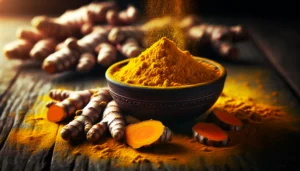Herbal Remedies for Blood Pressure Support
Herbal Remedies for Blood Pressure Support
High blood pressure, also known as hypertension, is a prevalent condition affecting millions globally. It is often dubbed the "silent killer" because it may not exhibit immediate symptoms while causing significant damage to your heart, kidneys, and other vital organs over time. While medications can effectively manage hypertension, many individuals seek natural approaches to support their blood pressure levels. Herbal remedies have gained traction for their potential benefits. This article will explore various herbs and their effects on blood pressure regulation, along with insights into their proper use.
Understanding Hypertension
Before delving into herbal remedies, it’s essential to understand hypertension’s underlying mechanisms. Blood pressure measurements consist of two numbers: systolic (the pressure in blood vessels when the heart beats) and diastolic (the pressure when the heart rests between beats). Hypertension is classified into two categories:
- Primary Hypertension: Develops gradually over years and has no identifiable cause.
- Secondary Hypertension: Results from underlying conditions like kidney disease, obstructive sleep apnea, or hormonal disorders.
The management of hypertension often requires lifestyle modifications, and herbal remedies can play a complementary role in this context.
Popular Herbs for Blood Pressure Support
1. Garlic (Allium sativum)
Garlic has been renowned for its medicinal properties for centuries. Research indicates that garlic can lower blood pressure, primarily through its active compound, allicin. Allicin may help relax blood vessels and improve blood circulation.
- Recommended Use: Consuming 1-2 cloves of fresh garlic daily, or utilizing garlic supplements standardized to contain allicin can be beneficial.
- Precautions: High doses may lead to gastrointestinal issues or bleeding, especially if taken with blood-thinning medications.
2. Hibiscus (Hibiscus sabdariffa)
Hibiscus tea is not only refreshing but has been linked to reduced blood pressure levels. Studies reveal that hibiscus extract can effectively lower both systolic and diastolic blood pressure in individuals with elevated levels.
- Recommended Use: Drinking 2-3 cups of hibiscus tea daily may be effective in lowering blood pressure.
- Precautions: People with low blood pressure or those on antihypertensive medications should monitor their blood pressure while consuming hibiscus.
3. Cinnamon (Cinnamomum verum)
Cinnamon not only adds flavor to meals but also exhibits anti-inflammatory and antioxidant properties. Some studies suggest that cinnamon may reduce blood pressure in those with metabolic syndrome.
- Recommended Use: Incorporating 1-2 teaspoons of ground cinnamon into your diet daily or using cinnamon extracts may provide benefits.
- Precautions: Coumarin-rich varieties should be used cautiously; excessive intake might lead to liver damage.
4. Olive Leaf (Olea europaea)
Olive leaf extracts contain oleuropein, which may have a hypotensive effect. Research indicates that it can help lower blood pressure and improve cardiovascular health.
- Recommended Use: Taking 500-1000 mg of olive leaf extract daily is commonly recommended.
- Precautions: Consult with a healthcare professional if you are on blood pressure-lowering medications.
5. Basil (Ocimum basilicum)
Known for its culinary uses, basil may also hold promise for hypertension management. Preliminary studies suggest that basil can reduce blood pressure, potentially due to its high eugenol content, which can help to dilate blood vessels.
- Recommended Use: Incorporate fresh basil into meals or consume basil tea to harness its benefits.
- Precautions: Generally safe, but those with allergies to members of the Lamiaceae family should avoid it.
6. Ginger (Zingiber officinale)
Ginger has been used in traditional medicine for decades, showing promise in reducing blood pressure levels. Its active compounds may promote relaxation of blood vessels and improve circulation.
- Recommended Use: Drinking ginger tea or taking ginger supplements (1-2 grams daily) may yield positive results.
- Precautions: Excessive ginger intake may lead to digestive issues or interact with medications for blood pressure.
7. Fenugreek (Trigonella foenum-graecum)
Fenugreek seeds are rich in soluble fiber and other compounds that could potentially help in managing hypertension. Preliminary studies suggest that consuming fenugreek may reduce blood pressure in diabetic patients.
- Recommended Use: Consuming 1-2 teaspoons of fenugreek seeds daily, either whole or as a powder, may be beneficial.
- Precautions: Large amounts can cause digestive upset and should be used with caution in pregnant women.
8. Lemon Balm (Melissa officinalis)
Lemon balm is a member of the mint family and has calming effects that can promote relaxation and stress reduction. Psychological stress can contribute to hypertension, so lemon balm can be a helpful tool.
- Recommended Use: Drinking lemon balm tea or taking it in tincture form can provide calming effects beneficial for heart health.
- Precautions: Generally safe, but those on sedative medications should consult a healthcare provider.
9. Coenzyme Q10 (CoQ10)
While not an herb in the traditional sense, CoQ10 has garnered attention for its potential role in blood pressure management. It’s an antioxidant that helps produce energy in cells, and its supplementation has shown a modest decrease in blood pressure.
- Recommended Use: A daily dose of 100-200 mg may yield clinical benefits.
- Precautions: Generally well-tolerated, but those on anticoagulants should seek medical advice.
10. Rauwolfia (Rauvolfia serpentina)
Traditionally used in Ayurvedic medicine, Rauwolfia contains reserpine, which can lower blood pressure by calming the nervous system. However, it is less common in modern herbalism.
- Recommended Use: Seek a healthcare professional’s advice for appropriate dosing due to potential serious side effects.
- Precautions: Can cause sedation, fatigue, and gastrointestinal issues.
Lifestyle Considerations To Enhance Herbal Effectiveness
Herbs can significantly benefit blood pressure support, but they work best as part of a comprehensive lifestyle approach. Here are some additional strategies to complement herbal use:
Diet Modifications
- DASH Diet: The Dietary Approaches to Stop Hypertension (DASH) diet emphasizes fruits, vegetables, whole grains, and low-fat dairy. This diet is rich in potassium, magnesium, and fiber—nutrients essential for heart health.
- Reduce Sodium: Cutting down on salt intake can significantly lower blood pressure. Aim to consume less than 2300 mg of sodium per day.
Regular Exercise
- Aerobic Activity: Engaging in 150 minutes of moderate aerobic activity, such as brisk walking or cycling, can lower blood pressure.
- Strength Training: Incorporating strength-building exercises twice a week can enhance overall cardiovascular health.
Stress Management
- Mindfulness and Meditation: Practices like yoga, deep breathing, and meditation can alleviate stress responses and may positively impact your blood pressure.
- Adequate Sleep: Aim for 7-9 hours of quality sleep each night. Poor sleep can exacerbate hypertension.
Regular Monitoring
- Check your blood pressure regularly with a home monitor to track your progress. This helps identify effective strategies and potential need for medical intervention.
Final Thoughts on Herbal Remedies for Blood Pressure
While herbal remedies can support blood pressure health, they should not replace standard medical treatments when necessary. It’s crucial to consult with a healthcare professional before starting any herbal regimen, particularly if you are pregnant, nursing, or taking other medications. This ensures safety and compatibility with existing treatment plans.
Integrating these herbs into a balanced lifestyle enriched with proper diet, exercise, and stress management can empower you to manage your blood pressure effectively. Remember that holistic health involves several layers, and each individual may respond differently to herbal treatments. Stay informed and seek guidance to tailor the approach best suited to your needs.








